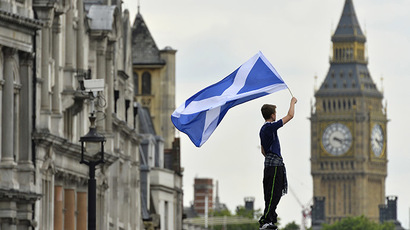Mainstream UK parties promise Scotland more powers if it stays in the union
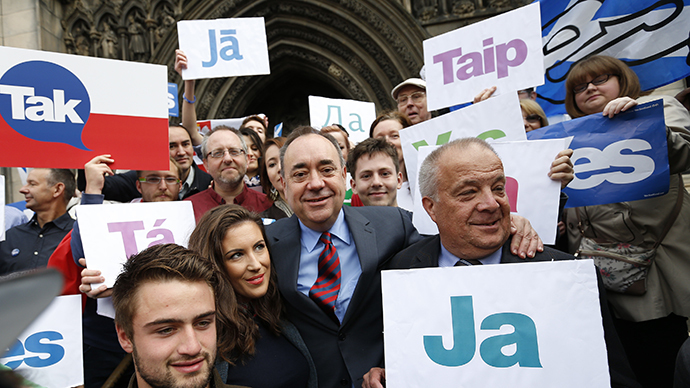
Britain’s major political parties have promised Scots more autonomy over tax and welfare spending if they choose to stay in the United Kingdom. The offer comes just over a week before the “too-close-to-call” independence referendum takes place.
Speaking in Scotland on Monday, former Prime Minister Gordon Brown said that new legislation granting Scotland more autonomy would be fast-tracked through the UK parliament.
"On September 19 we will start bringing into law the new, stronger Scottish Parliament, and to secure the change we want we will work with the other parties," he said.
Brown, who is still an MP, has recently taken a leading role in the pro-UK “Better Together” campaign. He became one of the campaigns’ high-profile figureheads following new data from pollsters YouGov and TNS showing that more than half of voters would be willing to vote to break away from the UK.
"It is too close to call and both sides will now be energized to make the most of the last few days of the campaign and try and persuade the undecided voters of the merits of their respective campaigns,” said Tom Costley, head of the TNS research group.
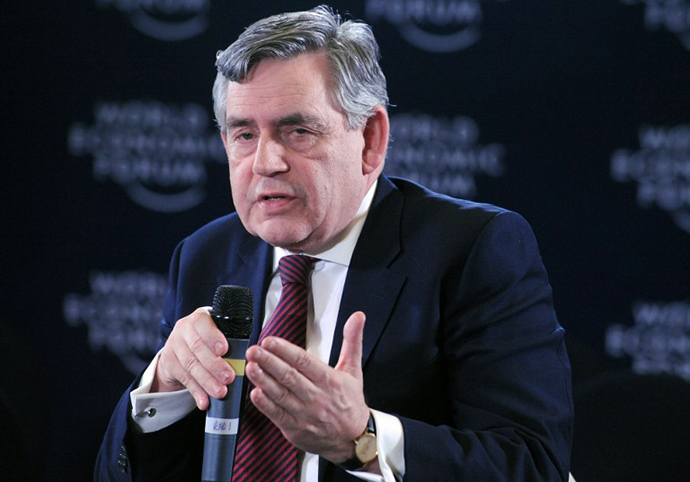
Following Brown’s statements, the “Yes” campaign, led by Scotland’s first minister, Alex Salmond, said that Westminster had been lacking in its proposals to Scotland.
"There's actually nothing new in this package whatsoever. This is a retreading, a repackaging, a re-timetabling of what they said in the spring," he told reporters in Edinburgh.
"This is a day the 'No' campaign finally fell apart," he added.
‘Stay with us!’
As referendum day draws ever closer, Prime Minister David Cameron is being urged by MPs to personally ask Queen Elizabeth II to speak in support of the union. While Britain’s head of state is supposed to be neutral in political affairs, she expressed “a great deal of concern" over the independence referendum and requested daily updates on the issue, according to a Sunday Times report.
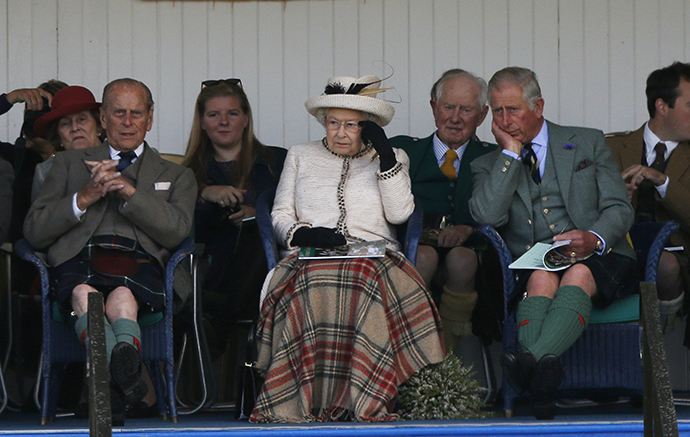
The only official statement the queen has made on the Scottish independence referendum was in May, when she addressed the general assembly of the Church of Scotland.
“In this important year of referendum, we pray that whatever the outcome, people of faith and people of good will, will work together for the social good of Scotland,” she said.
However, sources close to Buckingham Palace told the Daily Mail that the queen was a “unionist” and that a yes vote would put the palace in “unchartered territory” in regards to her position as head of state north of the border.
Labour Party leader Ed Miliband has also spoken in defense of the union, and on Tuesday urged cities and towns across the UK to fly the Saltire, the Scottish flag, in a last-ditch attempt to shore up the “No” campaign’s support.
"Over the next few days we want cities, towns and villages across the UK to send a message to Scotland: stay with us. We want to see the Saltire flying above buildings all across our country,” he said.
Sterling takes a pounding
While the outcome of the referendum is still too close to call, uncertainty over next week’s results have hit sterling on the currency markets.
According to official data, the pound fell to its lowest level in 10 months – by 1.3 percent against the dollar on Monday, and also fell by 1 percent against the euro.
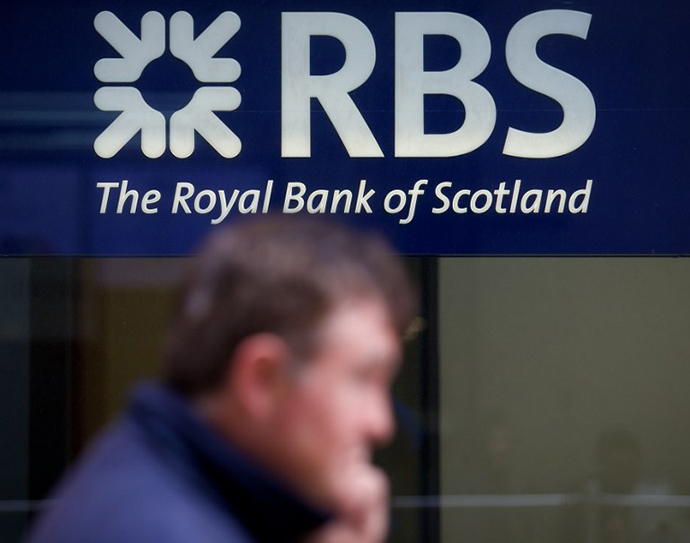
Shares in Scottish firms also fell on the stock market, including the Royal Bank of Scotland (RBS), which depreciated by 1.3 percent – one of the steepest declines to be recorded in recent times.
"The implications of a yes vote would be huge. On the currency side, it could at worst lead to a destabilizing crisis in the whole British banking system and at best leave the rest of the UK with an unstable currency union," Deutsche Bank analyst Oliver Harvey told investors.
Harvey added that a ‘yes’ vote also had the potential to delay the UK’s economic recovery.
"Scotland represents the rest of the UK's second-largest trading partner after the EU, and many corporate investment plans are likely to be put on hold until clarity over currency, regulatory and tax questions is achieved,".
A league of its own?
Despite warnings of doom and gloom, if an independence vote does succeed, many remain optimistic, arguing that Scotland would be capable of thriving on its own.
Earlier this month, the UK’s former NATO ambassador revealed she would be voting “Yes” to independence, saying that Scotland’s economy, demography and politics were “so distinctive” that they would be best served by a sovereign government.
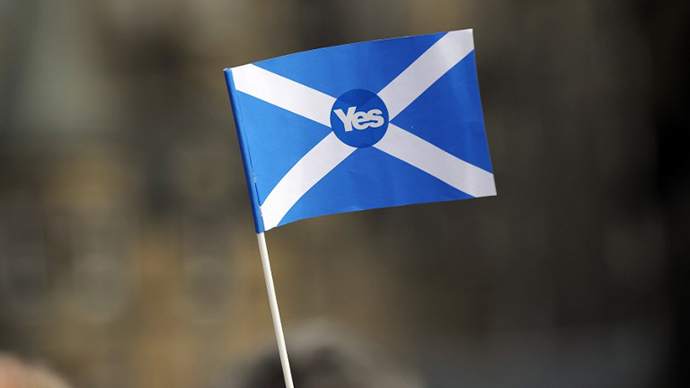
More than 200 Scots business leaders have also expressed their support for independence, arguing that the “Yes” vote would "encourage a culture in which innovation, endeavor and enterprise” could thrive, and that it would “place power in the hands of Scotland's people to channel the huge resources of our country in the interests of those who live and work here.”
Hundreds of thousands of Scottish voters have already started voting in postal ballots. For those going to polling stations, the vote takes place on Thursday, September 18.















